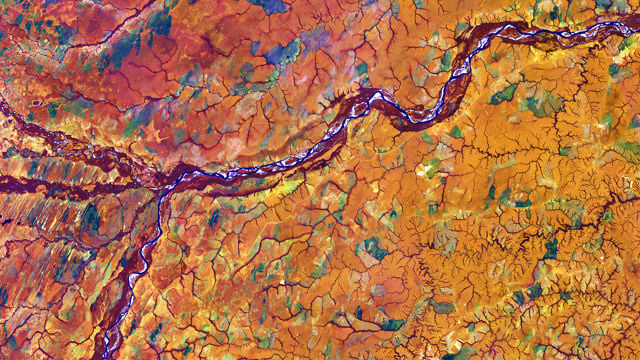
Climate, food, environment and energy
Financing schemes against climate-related disasters are an innovative way of financing climate adaptation in recipient countries. Norad acquired knowledge about the subject and a survey of various arrangements. Based on this, Norad entered into agreement with the African Bank in support of the Africa Disaster Risk Financing Program. Norwegian funding enables African countries to better insure against climate-related disasters such as drought, floods or tornadoes, and contributes to preventive work in recipient countries.
Why
Natural resources, ecosystem services and climate are crucial for poverty reduction and socio-economic development, but unsustainable use of these resources can lead to dramatic consequences in the opposite direction. Climate change, loss of natural diversity, food security and access to energy are key challenges that threaten sustainable development globally. The natural crisis threatens human welfare, especially in poor countries that depend on local natural resources for survival. Tropical forests, which provide livelihoods for millions, are being destroyed, leading to large greenhouse gas emissions and loss of biodiversity. Changes in land use, overfishing, pollution and climate change are the main causes of biodiversity loss. Increased use of renewable energy sources is essential to reduce greenhouse gas emissions and ensure access to energy for the almost 700 million people lacking electricity today.
What
Norwegian aid supports the conservation and sustainable use, such as job creation and commercial development, of ecosystems, including rainforests and marine areas. This includes capacity building, combating environmental crime and support for local biodiversity plans. Within the energy sector, access to renewable energy and facilitating the financing of energy development is a core, in addition to supporting climate adaptation and low-emissions development. Norwegian development aid also includes sustainable marine management and sustainable fisheries and aquaculture. Through NICFI (Norway's International Climate and Forest Initiative), the aid is focused on sustainable forest management to reduce deforestation and forest destruction in developing countries. This helps slowing down climate change, preserving biodiversity and promoting sustainable development.
Where
Norwegian aid in this field is global. The forests area has a particular focus on tropical forest lands in Asia, Africa and Latin America through the climate and forests programme. Projects for natural diversity are supported in countries such as Indonesia, Brazil, Peru, Guyana, DR Congo and Colombia, in collaboration with large environmental funds and civil society organisations. The energy aid is also global, but with a major focus on Africa. Aid targeted at ensuring sustainable food systems and strengthening food security mainly goes to African countries south of the Sahara.